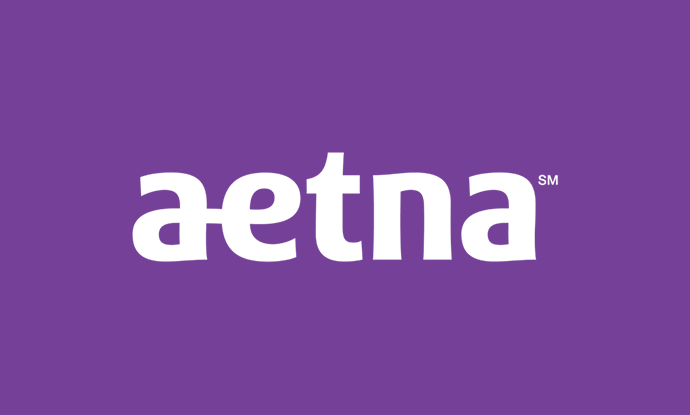Aetna Expands Alignment Program for Dual Eligibles in Illinois
The payer has received positive feedback from dual eligibles in the program about having a designated care coordinator.

Source: Aetna Logo
- Aetna is expanding its existing Medicare-Medicaid Alignment Initiative (MMAI) plan to provide coverage for all dual eligibles in Illinois.
Since March 2014, the MMAI has been providing coordinated care to individuals who are eligible for both Medicaid and Medicare in the Chicago metropolitan area and Central Illinois. Aetna has received approval to expand its Aetna Better Health Premier Plan MMAI, making it the only payer authorized to administer the program in all 102 Illinois counties, according to the press release.
The integrated care delivery system, which was a result of a partnership between the Illinois Department of Healthcare and Family Services and CMS, provides dual eligible beneficiaries with Medicare and Medicaid services under one health plan. This integration ensures easier access to care for these members.
“Aetna Better Health Premier Plan MMAI is committed to supporting additional dual eligible customers across the state of Illinois through our MMAI product offering,” Corey Taliaferro, executive director of the Aetna plan, stated in the press release.
“We consistently receive positive feedback from our dual eligible members who enjoy the convenience of having all of their Medicare and Medicaid benefits in one plan. They tell us having a designated care coordinator goes a long way in helping them to successfully meet their individual health care needs and goals.”
Ahead of Aetna receiving approval to expand the program, the payer secured contracts with provider networks in order to meet dual eligibles’ Medicare and Medicaid healthcare needs. The program and payment model seek to improve care coordination and quality as well as make it more cost-effective.
Eligible individuals in the new Illinois counties that will receive coverage can enroll in MMAI starting in June 2021. Their plan selection will be effective July 1, 2021. The effective date for those who are auto assigned to a health plan with passive enrollment will be September 1, 2021.
CMS introduced the MMAI integrated care model to state Medicaid leaders in April 2019 in hopes of providing more streamlined care coordination to the 12 million dual eligible beneficiaries nationwide.
“The Medicare and Medicaid programs were originally created as distinct programs with different purposes. Not surprisingly, the programs have different rules for eligibility, covered benefits, and payment, and the programs have operated as separate and distinct systems despite a growing number of people who depend on both programs for their health care,” CMS explained in a letter to state Medicaid directors when it introduced the model.
“This lack of alignment between the programs can lead to administrative inefficiency, fragmented or episodic care for 2 dually eligible individuals, and misaligned incentives for both payers and providers, resulting in reduced quality and increased costs.”
Dual eligible programs can help members navigate the challenges that accompany receiving both Medicaid and Medicare benefits simultaneously.
A MACPAC report noted six key areas to address when establishing an integrated dual eligible program: eligibility, beneficiary protections and enrollment, benefits, delivery system and care coordination, administration, and financing.
Challenges included deciding who would be eligible for the plan (Medicaid eligibility differs by state), determining whether to allow automatic enrollment (common in Medicaid but seen as inhibiting coverage choice in Medicare), developing a functional care coordination approach for providers, and more.
Type of Medicare coverage can make a difference in a beneficiary’s experience of dual eligibility.
Medicare Advantage dual eligibles have had better access to care compared to traditional Medicare members, according to a past report from NORC at the University of Chicago. Although these beneficiaries tended to have higher risk factors, such as old age and increased rates of chronic diseases, they reported fewer barriers when accessing care.
“Medicare Advantage dual eligibles experienced fewer disruptions in care during the pandemic, which may be the result of added care coordination and outreach from their health plans,” Caroline Pearson, senior vice president at NORC at the University of Chicago, said in the past press release.
Aetna’s expansion of its MMAI plan has the potential to simplify healthcare for dual eligible beneficiaries as well as extend coverage across Illinois.
